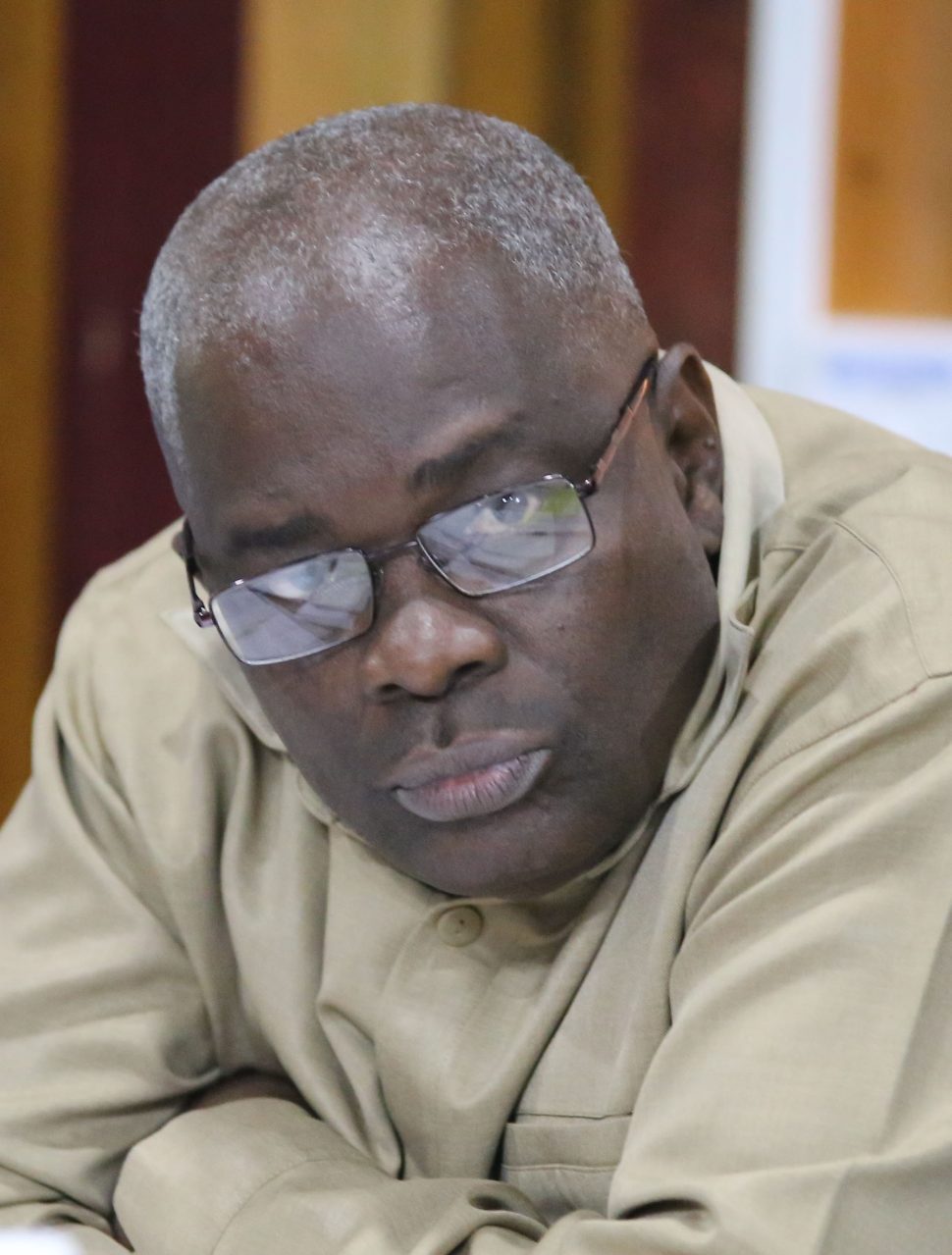Chief Election Officer (CEO) Keith Lowenfield yesterday defended his decision to invalidate the votes of over 115,000 citizens that were cast at the March 2nd polls by saying that he has acted lawfully, which the main opposition later said was “simply an untruth.”
Lowenfield, who has not spoken to the public since May and who this newspaper has been unable to contact despite repeated efforts, mounted his defence in response to a report published in yesterday’s Stabroek News, under the headline, “Lowenfield report seen as clear act of insubordination.”
In the report, a source noted that since the CEO is an employee of the Guyana Elections Commission (GECOM), who is subject to the “direction and control of the Commission”, Lowenfield was insubordinate when he submitted a report which deliberately ignored the directions of the Commission Chair.
Chairperson of the Commission Justice (ret’d) Claudette Singh had instructed Lowenfield to compose his report “using the results of the recount” of votes and instead he submitted to the Commission a report of what he deemed “valid and credible votes”.
His report shows a victory for the incumbent APNU+AFC after the invalidation of almost 25% of the votes cast at the March 2 polls.
While he offered no clear indication as to the origin of the numbers he submitted, Lowenfield yesterday said in a brief statement that “the Commission makes certain policy decisions and provides guidance to the Chief Election Officer for implementation by the Secretariat.”
“I have to execute my duties as a Constitutional Officer, particularly in the conduct of Elections,” he maintained, while accusing the source quoted in the article of conveniently reading the Constitution in part while failing to recognise the sections that dictates the functions of the CEO.
“The contents of the Stabroek News article suggests that the CEO must only act as the Commission instructs and flout the Constitutional requirements. At all times, I have acted in conformity with the laws and therefore my action cannot be ‘seen as clear act of insubordination’ as articulated in the ill informed Stabroek News article,” he added.
The main opposition People’s Progressive Party (PPP) immediately took issue with Lowenfield’s contention that his actions were constitutional.
According to a statement issued by the party, Lowenfield’s statement about the function and powers of the commission were false.
It reiterated that Section 18 of the Elections Law (Amendment) Act 2000 states: “The Chief Election Officer and the Commissioner of Registration shall notwithstanding anything in any written law be subject to the direction and control of the Commission.
Additionally, it noted that Order 60/2020, which governed the National Recount, states at paragraph 14 that the Commission shall determine whether it should request the Chief Election Officer to use the data compiled in accordance with paragraph 12 as the basis for the submission of a report under section 96 of the Representation of the People Act Cap 1:03.
Further, paragraph 15 of the order states that for the avoidance of any doubt, the Chief Election Officer and every person appointed or authorized to perform any act or functions by virtue of the Order, are and shall remain subject to the general supervisory power of the Commission.
As a result, the PPP argued that these provisions clearly show that Lowenfield is subject to the direction and control of the Commission at all material times.
‘Untenable’
It added that the Commission enjoys an overarching power over the entire electoral process and its officers, including the CEO as detailed in both Article 162(1)(b) of the Constitution and Section 22 of the Election Laws Amendment Act.
Article 162(1)(b) clearly states that GECOM shall issue such instructions and take such action as appear to it necessary or expedient to ensure impartiality, fairness and compliance with the provisions of this Constitution or of any Act of Parliament on the part of persons exercising powers or performing duties connected with or relating to the matters.
The PPP contends that the “matters” referenced in the Article include the administrative conduct of elections.
“Accordingly, Mr. Lowenfield’s position is simply untenable. No law gives Mr. Lowenfield the power to do what he attempted do, a fact he well knows…[he] is not a constitutional officer holder as he claims in his release, since the office of the CEO is not created by the constitution [but] by the Representation of the People Act,” it pointed out.
The Chief Election Officer is hired by the Commission, the party also reminded, while noting that he is therefore a statutory contractual officer of the Commission and his mandate is to only act upon the directions of the Commission.
“He has no power to invalidate a single vote, moreover 115,000 votes. Even the Commission has no power to invalidate votes. That is the preserve of the High Court moved by an election petition after the declaration of the final results upon the presentation of evidence,” the party stressed.
It also argued that Lowenfield has misinterpreted the ruling of Court of Appeal, which granted him no powers to determine the valid votes cast in the election.
“As much as we have an issue with the Court of Appeal’s ruling, to their credit, Justice Reynolds resided the power in the Commission, not the Chief Election Officer, to determine final and credible results. In any event the Court of Appeal’s decision was stayed and was not in effect at the time. Accordingly, on those bases alone Lowenfield’s attempt to hide behind the Court of Appeal’s judgment in committing electoral fraud must be discarded,” the party concluded.









